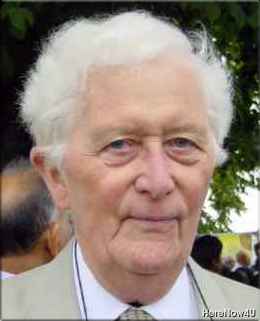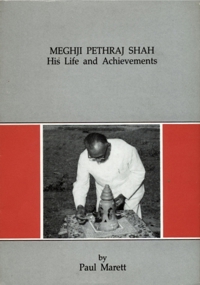
Meghjibhai, however, did not see his plans as limited to providing wages for the poor. Efforts had to be made to improve their way of life and the key to that was education. If their children could get a proper education instead of playing in the sand they would become the good citizens of the future. To raise man from the level of the animal there is no means so powerful as education. The roots of many evils in society lie in illiteracy and ignorance. He believed, therefore, that the poor should be given employment and their children should be given education. Meghjibhai felt that he had an obligation to help. Once he said, after he had started primary schools, opened libraries and assisted a large number of children with school fees and books, 'If I had failed to do even this for the society which greeted me and gave me the opportunity to make progress, it would have been ungrateful on my part'. As his wealth grew, so did he pass on considerable sums of the money he had earned to charitable causes. As he did this quietly without seeking fame his initial charitable activities were known only to a few. But from the very time when he started up in independent business in Mombasa and Nairobi he had been making financial donations for social works. Meghjibhai's first involvement with organised public charitable activities came, as has been mentioned earlier, in 1936. At that time he was heavily involved, as President, in the work of the Saurashtra Famine Committee in East Africa, which raised 175,000 shillings for famine relief. In fact, so successful were these efforts that quite a lot of money was left over. An Oshwal Education and Relief Society was created and the unspent balance was used for a boys' hostel in Jamnagar.
Meghjibhai believed in action not just words. People knew that his thoughts, words and actions were always consistent with one another and that is why, in his business ventures as well as his social service activities, his works earned universal respect. Mahatma Gandhi had called on industrialists, both great and small, to regard themselves as trustees of their property, rather than as proprietors. Even before Gandhiji made this call, Meghjibhai was observing this ideal in his own life. In his own words he expressed this, 'I came from a village. Years ago, I went abroad to earn my livelihood and by the grace of God I became successful in my business activities. But I appreciate that the money, which I have earned, is not just mine, but that of the brothers and sisters of my own nation, and all the people have a share in it. I repay this share by giving financial help for public needs as far as I am able. In doing this I am not laying anyone under an obligation to me but am simply doing my duty'. These words are indicative of Meghjibhai's generous qualities. There is no vanity, whether expressed or in his thoughts. His donations of hundreds of thousands of rupees bear witness to his acceptance of the trust in which he felt his wealth held. Until the last days of his life his charitable activities were directed towards humanitarian causes for the people of East Africa and the region of Saurashtra. And in this last, not only did he donate generously to the needs of Saurashtra but also obtained government contributions to the projects, which he supported.
Meghjibhai was a Jain by religion and he had deep faith in his religion. However, his attitude was never narrow nor sectarian. His desire that all the sects and branches of the Jain faith should be brought together is still far short of realisation. Nevertheless, he took part in those activities, which would promote the welfare of Jains, and he gave generously to many projects of the Oshwal community. It was his faith in his religion rather than a narrow sectarian or communal outlook, which played the main role in his philanthropic activities for the benefit of the Jain or the Oshwal communities. One occasion he said, 'I often feel that the changed atmosphere of today can be very useful in understanding Lord Mahavira's message of abstinence and non-possession. Never before was humanity in such great need of the preaching of the Jain religion about non-violence and non-possession as it is today and never before has there been an atmosphere so congenial to the practice of Jain teachings as there is today'. (Mahavira, the twenty-fourth Tirthankara or prophet of the Jains, laid great stress on non-violence, self-restraint and limitation of possessions). This is indicative of his deep faith in religion and his broad vision of the place of Jainism in the world. He was of the firm belief that the Jain religion is capable of being a major world religion with appeal to all people. It upset him to see that, far from being a major religious and philosophical system, Jainism had been turned into a small inward-looking sect. He was concerned at the lack of effort by Jains to present their religion in its true form to the wider world and he frequently expressed himself strongly on this subject. He insisted that within the Jain philosophy, science and outlook on society there was much, which could be of great benefit in ameliorating the human condition. In 1957 Meghjibhai made a speech at the twentieth conference of the Shri Jain Shwetamber Parishad, a major Jain organisation, and brought out these points, coupling them with the need to work also within the Jain community to improve the social, moral and financial position of Jains.
Although Meghjibhai had the interest of his community, and the whole of society at heart, he was not always able to carry other members of his community along with him in support of his schemes. An example of this was the banking, insurance and co-operative housing schemes for the benefit of the Oshwal community in Kenya, which he put forward in 1942. Had these schemes been accepted, a capital of twenty million shillings would have been built up, bringing in an annual income of 200,000 shillings to be expended on the welfare of the community. However, the leaders of the Oshwal community at that time lacked Meghjibhai's far-reaching vision and the schemes were not accepted. Thus, an invaluable opportunity was missed. One person who came near to knowing Meghjibhai's inner religious feelings was a Jain monk, Muni Chandraprabhasagarji, better known as Chitrabhanu. They first met around 1960 when Meghjibhai was on a visit to India. In the evenings, after the Muni had finished his period of meditation, Meghjibhai would visit him and they would talk together. Once Chitrabhanu asked Meghjibhai what was the secret of his success: he answered like this, 'To be successful one needs not so much brilliance as the understanding of others' emotions, needs and feelings so that you can work with them. Sometimes brilliant intellectual people think only of themselves and become isolated and have no rapport with their friends, subordinates, workers or family. If you call it success, I think of people's needs, and see them as my own, with the need to be recognised and appreciated'. Meghjibhai's simplicity was what Chitrabhanu liked about him, his habit of doing small things for himself, like washing the teacups, rather than asking somebody else.
Meghjibhai asked the Muni on one occasion, 'what is a Jain Economy?' The Jain scriptures tell us that income should be divided into four, one part for business, one for capital, one for living expenses, and the remaining part to be divided between religious purposes and saving for the future. A honourable businessman will live like this and will not go beyond his means. Meghjibhai practised this. He was reformist in his outlook and was not always appreciated by the more orthodox elements in the Jain community. He preferred to donate money for medicine, health and education rather than for community dinners, festivals and rituals, so same thought that he was not religious. That was not true. In his inner heart he was deeply religious. He was concerned with suffering, with life, with understanding: his faith was internal - he did not like exhibitionism.
Muni Chandraprabhasagar later was to take the dramatic step of leaving the monastic order and, as Chitrabhanu; he has spread the message of Jainism far afield. He remembers that it was Meghjibhai who first gave him the inspiration to serve in a wider field. Meghjibhai spoke to him in private. Here, he said, you have a few hundreds of thousands of Jains divided into many sects. There are Jains in London, in Africa, the U.S.A. who need your message of understanding and tolerance (Chitrabhanu used the word 'anekantavad', non-one-sidedness, when repeating what Meghjibhai had said). Jain monks may not travel except on foot: Meghjibhai asked why Chitrabhanu should not break with tradition and take his message to the people who are thirsty for it, people who have suffered the pains of war and need this message.
The orthodox Jain will not favour encouraging a monk to leave the order. Certainly (expressing this in the most neutral terms possible) Chitrabhanu has brought spiritual help to thousands and is greatly revered by his many followers, both Jains and non-Jains. The reader may form his or her own judgement.
 Dr. Paul Marett
Dr. Paul Marett

